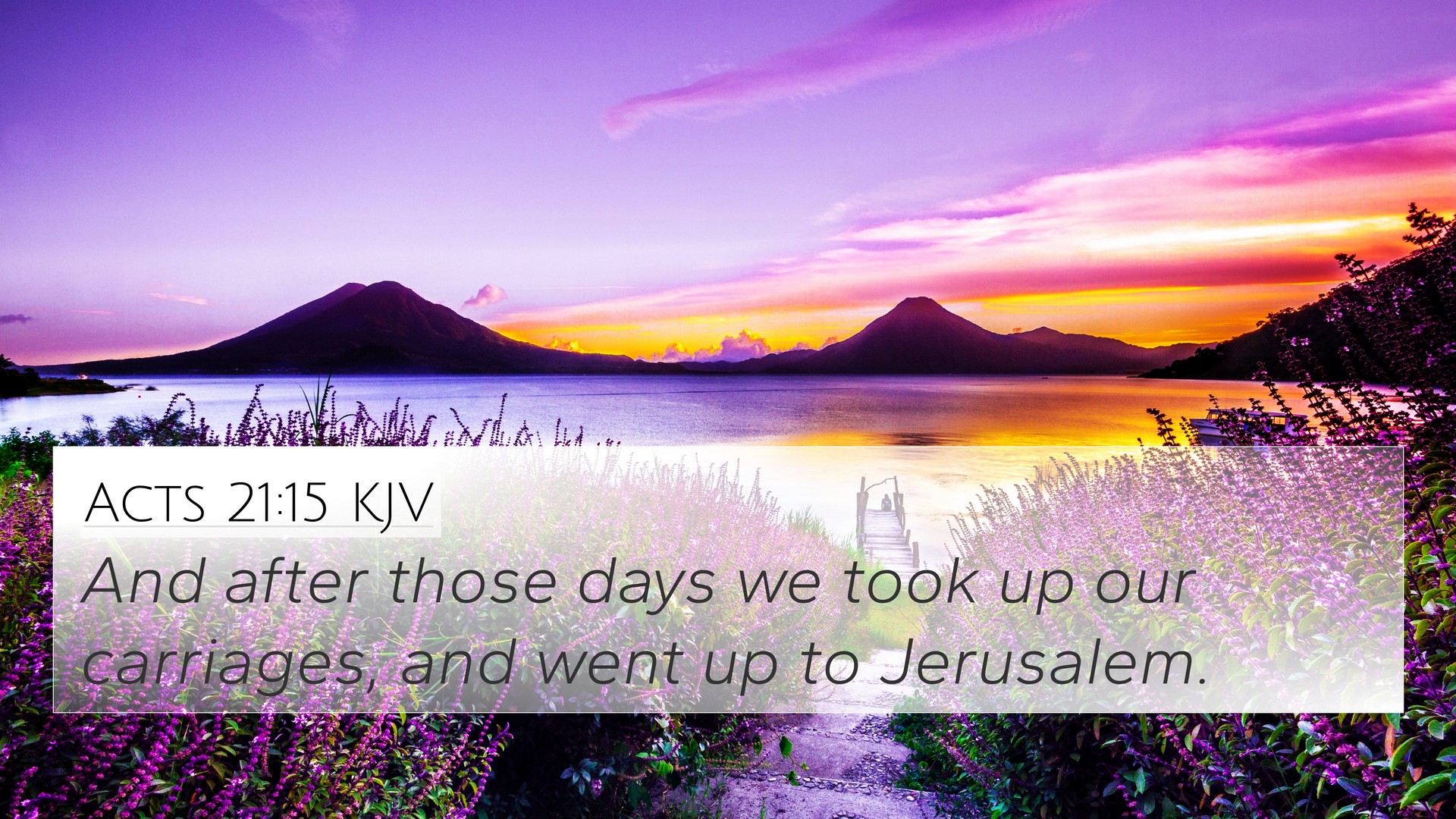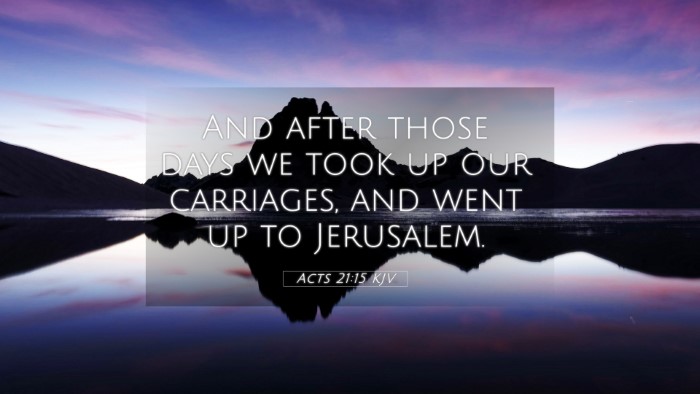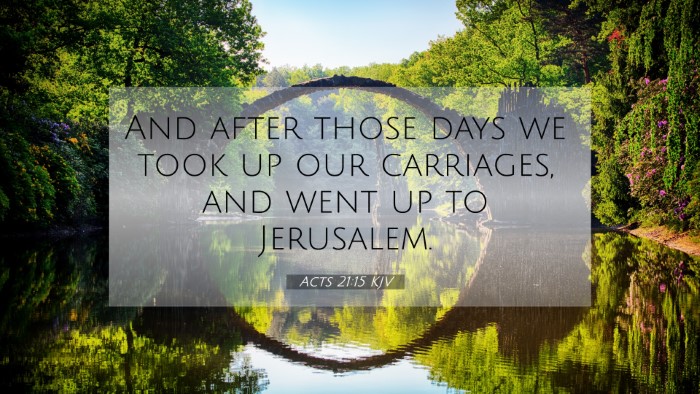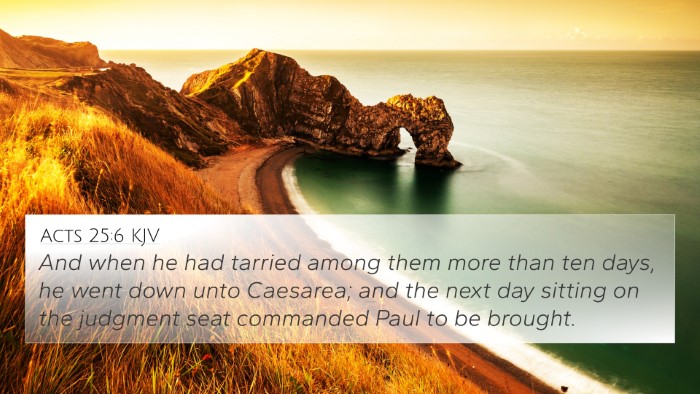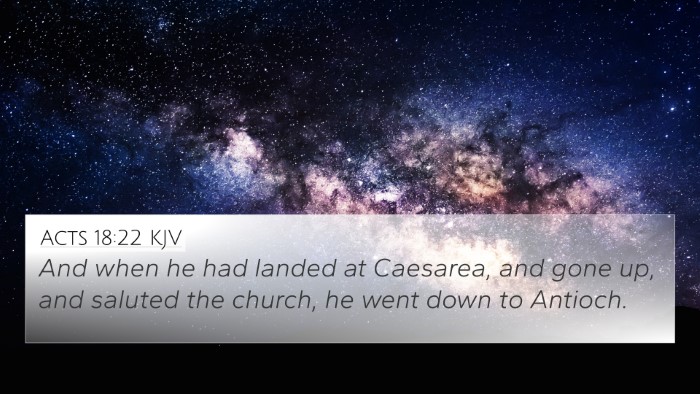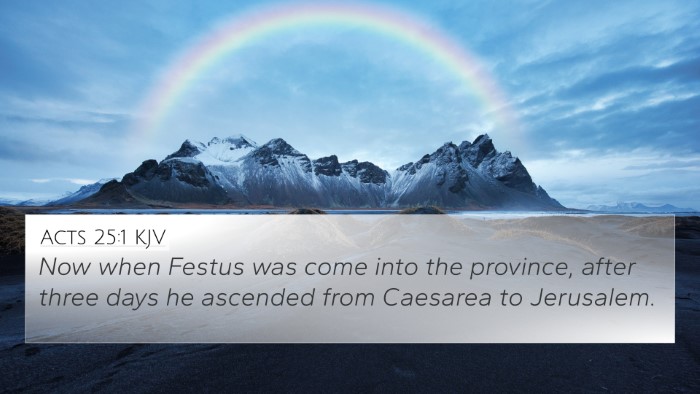Understanding Acts 21:15
Acts 21:15 states: "And after those days we took up our carriages, and went up to Jerusalem." This verse marks a significant moment in the journey of Paul and his companions as they prepare to head toward Jerusalem, a focal point for many events in the early Christian church. To fully grasp the meaning and implications of this verse, we will explore insights from public domain commentaries and investigate various connections between Bible verses.
Meaning of Acts 21:15
In this passage, the word "carriages" refers to the luggage or goods that the group had packed for their journey to Jerusalem. These preparations symbolize the serious commitment and anticipation that Paul and his companions have regarding their mission. The act of taking up their carriages indicates readiness to embark on a significant spiritual venture, showcasing their dedication and faith.
Commentary Insights
Matthew Henry's Commentary
Henry emphasizes the importance of the journey and the courage displayed by Paul. He notes that the journey to Jerusalem is pivotal in Paul's ministry, bringing him face to face with challenges that would ultimately lead to his imprisonment and further spread the Gospel.
Albert Barnes' Commentary
Barnes highlights the unity among Paul and his companions as they prepare for the journey. Their collective decision to head to Jerusalem underscores the bond within the early church and the shared mission of propelling the gospel forward despite impending adversity.
Adam Clarke's Commentary
Clarke points out the significance of Jerusalem as the spiritual center for the early Christians. His analysis suggests that this journey symbolizes not only a physical movement but also a spiritual pilgrimage, reflecting the core purpose of the apostles to fulfill the Great Commission.
Cross-References for Acts 21:15
Acts 21:15 connects to several other scripture passages, enhancing its meaning and providing a broader context for understanding Paul's mission:
- Matthew 28:19-20: The Great Commission parallels Paul's mission to spread the Gospel.
- Acts 20:22-24: Paul's previous statement about going to Jerusalem highlights the urgency felt in Acts 21:15.
- Acts 19:21: Paul’s decision to go to Jerusalem, discussing his plans with other ministers.
- Romans 15:25-27: Paul’s collection for the saints in Jerusalem reinforces his ties to the community.
- Acts 21:4: Early disciples warn Paul of dangers awaiting him in Jerusalem.
- Philippians 3:12-14: Paul's pursuit of the divine calling is echoed in his determination to reach Jerusalem.
- James 1:1: The epistle of James is addressed to the twelve tribes scattered among the nations, linking to the Jewish roots of the early church Paul is entering.
- Luke 9:51: Jesus’s resolute path toward Jerusalem serves as a prophetic parallel to Paul’s journey.
- Galatians 2:1-10: Paul’s visit to Jerusalem, discussing the revelation he received, enhancing his mission’s legitimacy.
- 1 Corinthians 16:1-4: The collection for Jerusalem directly relates to the urgency of the mission expressed in Acts 21:15.
Conclusion
Acts 21:15 represents a critical moment in the narrative of Paul’s apostolic journey. Through the insights derived from Matthew Henry, Albert Barnes, and Adam Clarke, along with various cross-references, we gain a deeper understanding of the significance of this verse. This understanding reflects the inter-biblical dialogue that exists throughout the scripture, connecting themes of mission, commitment, and the struggles of early Christians. This verse, and its cross-references, create a rich tapestry that illustrates the continuity of God's plan and the faithful response of His followers amid challenges.
